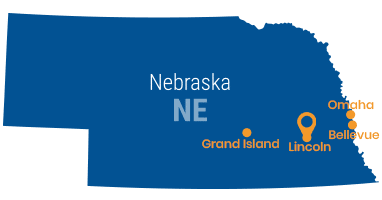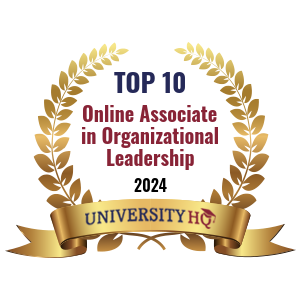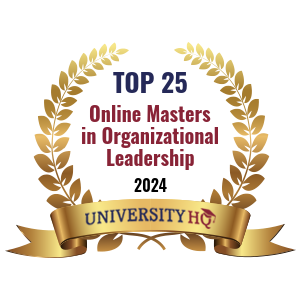What is Organizational Leadership?
Organizational leadership is an essential aspect of any business, and it plays a crucial role in the success of the organization. In the state of Nebraska, there are numerous businesses that require skilled leaders who can manage teams effectively. According to data provided by the Bureau of Labor Statistics, there were an estimated 2,180 individuals working as management professionals in Nebraska as of May 2020. This figure includes managers in various fields and industries and provides an accurate representation of those employed in business leadership roles.
An organizational leader is defined as any individual responsible for overseeing the vision, strategy, and direction of an organization. They work closely with other executives and managers to align company goals with those of its stakeholders, all while managing various teams or departments within an organization to ensure employees work cohesively to reach its goals.
The primary role of an organizational leader is to develop and implement a strategic plan for the organization. This involves identifying the company's strengths and weaknesses, assessing market trends and competitors, and creating a plan to achieve the company's objectives. They are also responsible for managing the organization's budget, ensuring that resources are allocated appropriately to achieve the desired outcomes.
Organizational leaders play a critical role in creating and upholding a positive company culture. They work to foster an atmosphere in which employees feel appreciated and motivated to contribute to its success, as well as making sure that all are aware of its mission and values and building an encompassing sense of community between stakeholders.
Effective organizational leaders possess a variety of skills including excellent communication, problem-solving abilities, motivating others, and inspiring them to act ethically. Furthermore, these leaders must have the ability to collaborate well with colleagues from all levels within an organization in order to form strong bonds across its entirety.

Featured Online Programs
Online Organizational Leadership Education in Nebraska
The majority of individuals in management roles in Nebraska work in the professional and business services industry, with over 42% of these managers employed in that sector. Other industries with a significant number of organizational leaders include healthcare and social assistance, manufacturing, and government. Nebraska individuals looking for careers in organizational leadership should pursue a degree in business administration, organizational management or related field. Many colleges and universities across Nebraska offer degree programs specifically focusing on leadership and management skills - providing them with essential leadership knowledge required for success in these fields.
To pursue a career in organizational leadership in Nebraska, individuals can consider earning a degree in business administration, organizational management, or a related field. Many colleges and universities in the state offer degree programs that specifically focus on leadership and management skills, equipping students with the necessary knowledge to succeed in the field. Individuals can also gain valuable leadership experience by engaging in internships or volunteering for leadership positions within their local community - or by taking on such duties in their current workplace.
Online Associates (AS)

Organizational leadership is a field that focuses on developing effective leadership skills in individuals to manage and lead organizations towards success. An associate degree in organizational leadership provides students with a foundation of knowledge and skills required to become successful leaders in various industries.
The program curriculum may include courses such as organizational behavior, strategic planning, communication, conflict resolution, and ethics. These courses are designed to help students understand the complexities of organizational dynamics and how to navigate them effectively. By studying these concepts, students can develop their critical thinking abilities and learn how to make decisions that align with the organization's goals.
Graduates with an associate degree in organizational leadership can pursue entry-level positions like management trainee or supervisor roles. They can also transfer their credits towards a bachelor's program for further career advancement opportunities. Overall, this degree equips individuals with leadership qualities that can be applied across different industries and settings, making it a valuable investment for those seeking to advance their careers as leaders.
Online Bachelors (BS)

Organizational leadership is a field that focuses on developing and implementing effective strategies to improve the performance of businesses, non-profit organizations, and government agencies. As an academic discipline, it draws from various fields such as psychology, sociology, communication studies, business administration, and public policy. The goal of organizational leadership is to create a positive work environment that fosters innovation, collaboration, diversity, and inclusion.
A bachelor's in leadership equips students with the skills needed to lead teams effectively in any industry. The curriculum in these programs typically covers topics like human resource management, project management, conflict resolution, communication techniques, and ethics. Students may also be exposed to real-world challenges through case studies and internships. Graduates can pursue careers as managers or supervisors in a range of industries including healthcare administration, corporate training, or non-profit management. With its focus on practical application of leadership theories in everyday situations, a bachelor’s in this field is an excellent choice for those looking for a fulfilling career path where they can make a meaningful impact on their organization's growth and development.
Find Your Online Organizational Leadership Program
Online Masters (MS)

A master's degree in organizational leadership focuses on developing the skills needed to lead and manage complex organizations. These programs emphasize critical thinking, problem-solving, communication, and decision-making skills that are essential for effective leadership. Graduates of these programs can pursue careers as executive leaders in various industries such as healthcare, education, government, non-profit organizations, and corporate settings.
The curriculum of a master's degree in organizational leadership includes courses such as strategic planning, organizational behavior and design, human resource management, ethics, social responsibility in business organizations, and various elective courses if you are focusing on a specialization. Students in these types of graduate studies may also learn how to cultivate a company culture that encourages collaboration among employees while promoting individual growth. Additionally, they develop an understanding of how to build relationships with stakeholders both within and outside the organization.
Overall, a master's degree in organizational leadership equips students with the knowledge and skills necessary to drive innovation and growth within their respective fields. It prepares them for leadership roles by providing them with insights into managing change effectively while maintaining high levels of employee engagement. As such graduates are well-positioned to take on challenging roles where they can make meaningful contributions toward improving their organizations' performance outcomes while ensuring sustainability over the long term. Working professionals who do not have the time to complete a full graduate degree program may instead choose to earn a graduate certificate.
Online Doctorate (PhD)
A PhD in organizational leadership is a degree program designed to equip students with the skills and knowledge required to become successful leaders in various organizational settings. These programs cover topics such as organizational behavior, strategic planning, change management, communication, leadership theory, decision-making, and innovation. Graduates of this program can pursue careers as senior executives, consultants, researchers, or professors.
The coursework for a PhD in this field typically includes theoretical and practical elements that enable students to understand the complexities of leadership within organizations. This includes topics like understanding human behavior within organizations, developing strategies for creating sustainable organizational cultures, designing effective communication channels, and implementing best practices for leading teams toward shared objectives. Students also learn about research methods that they can use to conduct empirical studies on leadership-related questions.
In summary, a PhD in organizational leadership prepares individuals for leadership positions by providing them with the necessary skills and knowledge needed to navigate complex organizational environments effectively. Graduates can work across industries in both public and private sectors as consultants or executives who are tasked with leading their organizations towards success while building strong teams that are committed to achieving common goals. The rigorous education provided by this program ensures that graduates have an excellent foundation upon which they can build long-lasting careers as leaders who make meaningful contributions to society through their work.
Online Certifications
Organizational leadership certifications are designed for individuals who want to enhance their leadership skills and advance in their careers. These certifications can be obtained through various institutions and organizations such as universities, trade associations, and professional development programs.
One popular organizational leadership certification is the Certified Manager (CM) program offered by the Institute of Certified Professional Managers (ICPM). This program is aimed at managers who want to improve their managerial skills and increase their chances of career advancement. The CM program covers a range of topics including finance, marketing, human resources management, ethics, and strategic planning.
Another widely recognized organizational leadership certification is the Project Management Professional (PMP) credential offered by the Project Management Institute (PMI). This certification is ideal for professionals who manage projects in various industries. PMP certification holders are skilled in project management techniques that help them deliver projects on time, within budget, and with high quality standards. Ultimately, obtaining an organizational leadership certification demonstrates a commitment to continuous learning and professional growth in the field of leadership.
Become a Leader in Nebraska
Nebraska has a strong and vibrant community of leaders who are making a positive impact in their communities. If you aspire to become a leader in Nebraska, there are several steps that you can take to build your skills, connections, and reputation within your field.
-
Step 1: Get Involved in the Community
One of the best ways to become a leader in Nebraska is to become actively engaged with your local community. You can attend events, volunteer for non-profits, or join community groups; this will enable you to expand your network of contacts while simultaneously becoming familiar with issues facing Nebraska and gaining the necessary tools to address them.
-
Step 2: Develop Your Public Speaking Skills
Communication skills are crucial for leaders, and public speaking should be prioritized as part of your training. You could join a Toastmasters club or take a public speaking course to hone your abilities and build up confidence when facing an audience. Doing this can prepare you for speaking engagements, as well as helping you to articulate ideas clearly and persuasively.
-
Step 3: Pursue Higher Education
Higher education isn't necessary to become a leader, but it can certainly help. Studying political science, public administration, or business can also give you a deeper understanding of issues facing Nebraska, as well as providing the skills necessary for managing them effectively. Furthermore, many leadership positions require formalized education or advanced training before considering them candidates.
-
Step 4: Take On Leadership Roles
One of the best ways to become a leader is by taking on leadership roles yourself. You might choose to volunteer to lead a committee or project at work, run for a leadership position within an existing community organization, or launch your own initiative; these options provide ample opportunity for you to demonstrate your abilities as an effective leader, build your reputation, and establish yourself as someone capable of making a positive difference in the world.
Find Online Organizational Leadership Programs
What Can I Do with a Bachelor's in Organizational Leadership?
A bachelor's in organizational leadership prepares students for careers in various industries such as healthcare, education, government, and non-profit organizations. Graduates can pursue positions such as human resource managers, training and development specialists, project coordinators, and operations managers. With a degree in organizational leadership, individuals can also explore opportunities in consulting firms or start their own business ventures. They possess the necessary skills to analyze complex situations and provide effective solutions that improve organizational performance.
Additionally, pursuing a graduate degree after obtaining a bachelor's in business leadership can lead to higher-level management positions with greater responsibility and higher salaries. Overall, this degree provides individuals with versatile skills that are highly sought-after by employers across various industries.
Potential Careers for Organizational Leadership Graduates
- Business Management Analyst:
A management analyst is responsible for conducting research, analyzing business operations and processes, and developing recommendations to improve organizational efficiency and effectiveness. They work closely with senior management to identify areas of improvement and develop strategies to optimize performance.
Necessary Requirements:
- Bachelor's degree in Business Administration, Economics, or a related field
- Strong analytical skills with experience in data analysis
- Excellent communication and presentation skills
- Ability to work independently as well as in a team environment
- Proficient in Microsoft Office Suite, particularly Excel
- Knowledge of project management methodologies is an asset
Estimated Salary
- The median annual wage for management analysts in the US in 2021 was $93,000
- The mean annual wage for management analysts in Nebraska is $83,710
- Vice President:
Vice presidents play an essential role in driving strategic direction and growth within an organization, working closely with both President and CEO in creating business strategies that achieve company goals and objectives.
Necessary Requirements:
- Bachelor's degree in business administration or related field; MBA preferred
- Proven track record of success in a leadership role
- Excellent communication, collaboration, and problem-solving skills
- Strong analytical skills with the ability to analyze data and make informed decisions
- Ability to work under pressure and meet tight deadlines
- Demonstrated ability to build relationships with internal and external stakeholders
Estimated Salary
- The mean annual wage for general and operations managers in the US in 2021 was $122,860 and chief executives earn $246,440
- The mean annual wage for general and operations managers in Nebraska is $95,980 and chief executives earn $232,210
- Legislator:
As a legislator, your main responsibility would be proposing, debating, and passing laws at either a local, state, or federal level. Working closely with other lawmakers to craft policies that benefit constituents while making sure their interests are represented throughout the legislative process is your goal.
Necessary Requirements:
- A degree in law, political science or a related field
- Prior experience working in government or politics
- Strong communication skills and the ability to build relationships with stakeholders
- Knowledge of legislative processes and procedures
- A strong work ethic and the ability to work long hours when necessary
- A commitment to serving the public interest and improving communities through policy-making
Estimated Salary
- The mean annual wage for legislators in the US in 2021 was $71,100
- The mean annual wage for legislators in Nebraska is $46,980
- Computer Information Systems Manager:
Information systems managers are charged with overseeing the implementation, maintenance, and optimization of an organization's information systems. In this role, they must possess both technical expertise and strong leadership qualities to ensure all systems operate as intended and efficiently.
Necessary Requirements:
- Bachelor's degree in computer science or related field
- Several years of experience in information systems management
- Knowledge of various software and hardware systems
- Strong leadership and communication skills
- Ability to troubleshoot technical issues
- Understanding of data privacy regulations and compliance
- Ability to manage multiple projects simultaneously
Estimated Salary
- The median annual wage for computer and information systems managers in the US in 2021 was $159,010
- The mean annual wage for computer and information systems managers in Nebraska is $125,800
- Community Service Manager:
Community service managers are responsible for overseeing community service initiatives within an organization's mission and values framework, working collaboratively with community partners, volunteers, and stakeholders in developing programs which effectively meet community needs.
Necessary Requirements:
- Bachelor's degree in social work, non-profit management, or related field
- Relevant experience in community service or non-profit management
- Excellent organizational, communication, and leadership skills
- Ability to work collaboratively with diverse groups of people
- Strong knowledge of community resources and issues affecting the population served
Estimated Salary
- The median annual wage for social and community service managers in the US in 2021 was $74,000
- The mean annual wage for social and community service managers in Nebraska is $78,800
- Healthcare Administrator:
A healthcare administrator is responsible for overseeing the day-to-day operations of healthcare facilities, ensuring that they run efficiently and effectively while maintaining high standards of patient care.
Necessary Requirements:
- Bachelor's degree in healthcare administration or related field (Master's degree preferred)
- Experience in healthcare management or administration
- Strong leadership and communication skills
- Knowledge of healthcare regulations and industry trends
- Ability to analyze data and make sound decisions
- Understanding of financial management and budgeting principles
Estimated Salary
- The median annual wage for medical and health services managers in the US in 2021 was $101,340
- The mean annual wage for medical and health services managers in Nebraska is $113,110
- Public Relations Manager:
A public relations manager is responsible for developing and implementing strategic communication plans to promote the company's brand, products, and services. They are also accountable for maintaining the company's reputation and relationships with the media, stakeholders, and the public.
Necessary Requirements:
- Bachelor's degree in Communications, Public Relations or a related field
- Proven work experience as a Public Relations Manager or similar role
- Excellent written and verbal communication skills
- Strong interpersonal skills with the ability to build relationships with key stakeholders
- Ability to work well under pressure and handle multiple projects simultaneously
- Knowledge of social media platforms and digital marketing trends
Estimated Salary
- The median annual wage for public relations and fundraising managers in the US in 2021 was $119,860
- The mean annual wage for public relations managers in Nebraska is $106,710
- Facilities & Organizational Manager:
A facilities manager is responsible for overseeing the maintenance, repair, and operation of a company's physical facilities. This includes managing staff, coordinating with outside contractors, and ensuring compliance with safety and environmental regulations.
Necessary Requirements:
- Bachelor's degree in facilities management or related field
- 5+ years of experience in facilities management or a related field
- Excellent communication skills, both written and verbal
- Strong organizational skills with attention to detail
- Ability to manage people effectively
- Knowledge of safety and environmental regulations
- Experience managing budgets preferred
Estimated Salary
- The mean annual wage for facilities managers in the US in 2021 was $105,970
- The mean annual wage for facilities managers in Nebraska is $96,280
Search All Programs
